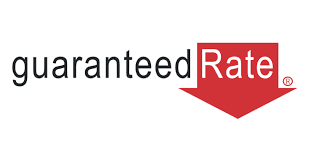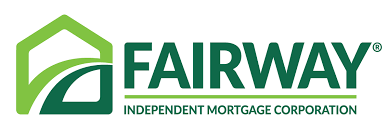Lender LendingTree rating and “best of” category Lender review


Refinance loansRead our review


VA loansRead our review


Jumbo loansRead our review


Online mortgage experienceRead our review


FHA loansRead our review


Home equity loansRead our review


Mortgage loan varietyRead our review
![]() Learn more about how we chose our list of the best mortgage lenders.
Learn more about how we chose our list of the best mortgage lenders.
Like other states, Wyoming has legal guidelines and tax laws that buyers need to consider when shopping for a home.
If you’re selling vacant land in Wyoming, you must provide a statement disclosing environmental and safety concerns, such as the availability of water and sewer infrastructure, public utility information and fire protection services. Sellers are not legally required to disclose information about the condition of a home, although they may be charged with fraud if they do not disclose a known defect or misrepresent the quality or characteristics of a home. Wyoming is what’s known as a “caveat emptor” state, which means “buyer beware.” Under that doctrine, the burden typically falls on the buyer to make sure the purchase is a wise one, so buyers need to ensure they get a thorough inspection.
Wyoming allows both judicial and nonjudicial foreclosures. Judicial foreclosures require that proceedings be overseen by a court, while nonjudicial foreclosures allow lenders to foreclose outside of a courtroom. The nonjudicial foreclosure process typically begins with the lender trying to work out a payment schedule with borrowers, and if that’s unsuccessful, filing a public notice of default before selling the home at a public auction. In Wyoming, a lender can also seek a deficiency judgment. This means it can sue the foreclosed homeowner if proceeds from the home’s sale fall short of the amount owed.
Wyoming is an equitable distribution state, so in the event of a divorce, all assets, including property, and debts are divided fairly. That doesn’t automatically mean a 50/50 split, as would be the case in a community property state. Instead, it means factors such as each divorcing party’s earnings — and potential for future earnings — determine how much they get. In an equitable distribution state, any assets acquired by spouses individually before the marriage stay with them after the divorce.
In Wyoming, buyers can hire a lawyer to represent them during a real estate closing, but they can also use an escrow agent or representative from a title company.
Real estate transfer taxes are state or local dues imposed when a piece of property changes hands from buyer to seller. Wyoming does not levy this tax, which may be appealing to buyers looking for a more tax-friendly state.
You may also be able to benefit from a property tax exemption, deferral or refund if you live in Wyoming.
To learn more about these potential tax benefits in Wyoming, see this Wyoming state government website.
In Wyoming, the median property tax rate is now 0.58%, which is among the lowest in the country, according to Tax-Rates.org. For homeowners, that works out to an annual median property tax of $1,058 for a house worth $184,000.
As in many states, property tax bills in Wyoming vary widely, depending on the county. According to Tax-Rates.org, the median property tax in Teton County is now $3,496 per year, based on a high median home value of $723,700. Teton — home to two national parks and several ski resorts — is a popular vacation destination. By contrast, the annual tax bill is just $579 per year in Wyoming’s Weston County, which sits along the northeast border with South Dakota.
In 2019, the maximum conforming loan limit for most single-family houses in Wyoming is $484,350, the same amount for most of the U.S. However, high-priced Teton County now has a maximum loan limit of $726,525.
Conforming loan limits let you know the maximum amount you can borrow for a mortgage that adheres to the guidelines set by two government-sponsored enterprises, Fannie Mae and Freddie Mac, which are charged with ensuring the mortgage market is both more affordable and less risky for borrowers.

If you’d like to buy a home in Wyoming, consider looking into one of the state’s assistance programs. The Wyoming Community Development Authority (WCDA) is the state entity tasked with helping Wyoming residents become homeowners; it can help buyers get a more affordable mortgage and help with down payment and closing costs.
First-time homebuyers may also be able to take advantage of WCDA’s mortgage credit certificate program and receive a federal tax credit for at least some of the mortgage interest they buy. Meanwhile, two WCDA programs (Advantage and HFA Preferred) offer mortgages with no purchase price limits, although buyers will need a credit score of 620 or more.
For more information, visit this WCDA website and read on to learn about three programs that may be of particular value to first-time buyers.
The First-Time Homebuyer program offers a 30-year mortgage that also comes with a low, fixed interest rate.
Who qualifies:
Spruce Up provides financing to cover both the purchase and rehabilitation of a property in one loan. Its features include:
Who qualifies
This loan can be used for a down payment, closing costs or certain prepaid expenses, such as real estate taxes. The DPA Loan features:
Who qualifies: